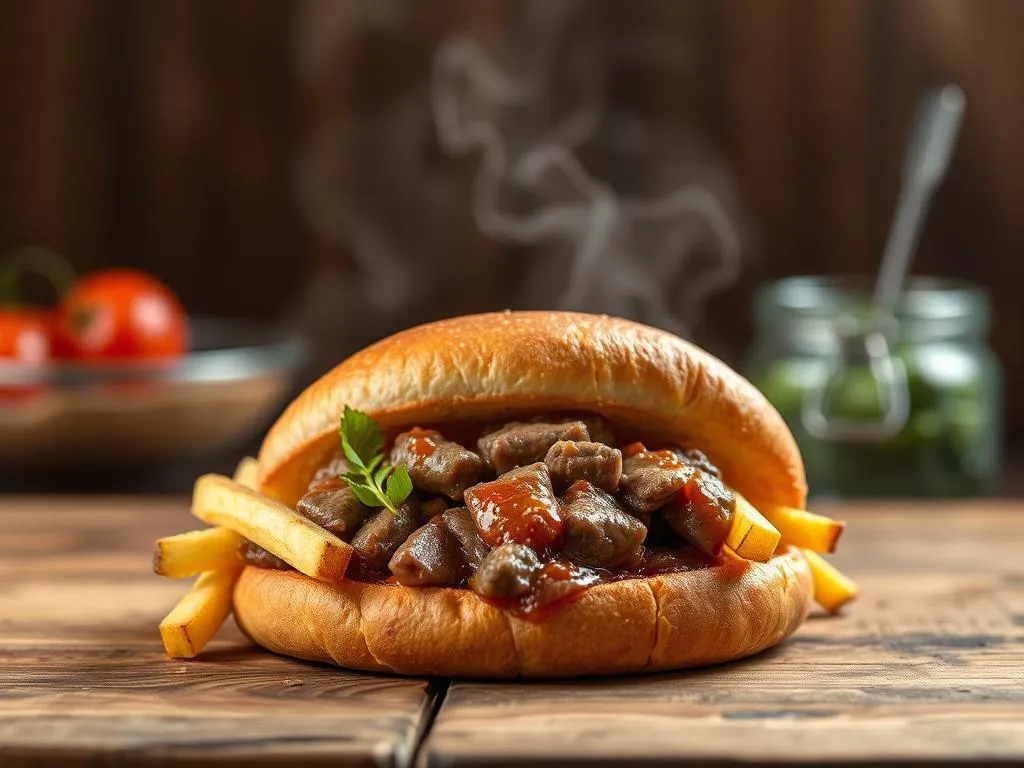
Introduction
As a dog owner, ensuring that your furry friend receives proper nutrition is paramount to their health and well-being. Just like humans, dogs require a balanced diet to thrive, and the quality of their food can significantly impact their overall health. One protein source that stands out in dog food formulations is beef. Best beef dog food options are popular among pet owners for their rich flavor and high nutritional value. In this article, we’ll dive deep into the world of dog nutrition, focusing on the benefits of beef, how to choose the best beef dog food, and much more.
Understanding Dog Nutrition
The Basics of Dog Nutrition
Dog nutrition is comprised of several macronutrients: proteins, fats, and carbohydrates.
- Proteins are crucial for muscle development and repair. They also play a role in enzyme and hormone production.
- Fats provide energy and support cell structure, while also aiding the absorption of fat-soluble vitamins.
- Carbohydrates supply energy and can aid in digestive health.
In addition to macronutrients, dogs also require micronutrients such as vitamins and minerals. These nutrients support various bodily functions, from bone health to immune function.
Specific Nutritional Needs by Life Stage
Dogs have different nutritional needs at various life stages:
- Puppies need high levels of protein and fat to support their rapid growth and development.
- Adult dogs require balanced nutrition to maintain their health and energy levels.
- Senior dogs often benefit from diets that are lower in calories but high in fiber to support digestive health.
Understanding these needs is essential when selecting the best beef dog food for your canine companion.
Benefits of Beef in Dog Food
Nutritional Profile of Beef
Beef is an excellent source of high-quality protein, providing essential amino acids that dogs need for optimal health. It also contains:
- Essential fatty acids that support skin and coat health.
- Important vitamins and minerals like iron, zinc, and B vitamins, which contribute to overall health.
Health Benefits of Beef for Dogs
Incorporating beef into your dog’s diet can yield several health benefits:
- Muscle development and maintenance: The protein content in beef supports muscle growth and repair.
- Healthy skin and coat: The fatty acids found in beef help to maintain a shiny, healthy coat and prevent dry skin.
- Improved energy levels: The rich calorie content in beef can provide your dog with the energy they need for play and exercise.
Choosing the Best Beef Dog Food
Key Ingredients to Look For
When selecting the best beef dog food, consider the following key ingredients:
- High-quality beef sources: Look for real beef or beef meal as the primary ingredient.
- Whole grains vs. grain-free options: Depending on your dog’s dietary needs, choose between high-quality grains (like brown rice) or grain-free formulations.
- Absence of fillers, artificial colors, and preservatives: Opt for brands that prioritize natural ingredients.
Reading Labels Effectively
Understanding dog food labels is crucial. Here are some tips:
- Ingredient lists: Ingredients are listed in descending order by weight. The first few should include quality protein sources.
- Nutritional adequacy statements: Look for statements from AAFCO (Association of American Feed Control Officials) indicating that the food meets specific nutritional standards.
Popular Types of Beef Dog Food
There are several formats of beef dog food available:
- Dry kibble: Convenient and long-lasting, often fortified with vitamins and minerals.
- Wet food: Typically more palatable and hydrating but may contain less protein than dry options.
- Raw or freeze-dried options: These provide a diet closer to what dogs might eat in the wild, with high protein content.
Top Picks for Best Beef Dog Food
Criteria for Selection
When evaluating the best beef dog food, consider the following criteria:
- Nutritional value: The food should provide a balanced diet.
- Ingredient quality: Look for reputable brands with high-quality ingredients.
- Brand reputation and reviews: Research customer feedback and brand history.
Review of Leading Brands
- Brand 1: Blue Buffalo
- Overview: Known for high-quality, natural ingredients.
- Benefits: Grain-free options and real beef as the main ingredient.
- Pros: Variety of formulas for different life stages.
-
Cons: Higher price point.
-
Brand 2: Merrick
- Overview: Offers both grain-free and traditional options.
- Benefits: High protein content and fresh, whole food ingredients.
- Pros: Variety in flavors and recipes.
-
Cons: Some formulas may be too rich for sensitive stomachs.
-
Brand 3: Taste of the Wild
- Overview: Focuses on high-protein diets inspired by a dog’s ancestral diet.
- Benefits: Real beef and unique protein sources.
- Pros: Affordable and well-reviewed.
-
Cons: Limited availability in some locations.
-
Brand 4: Royal Canin
- Overview: Known for breed-specific formulas.
- Benefits: Tailored nutrition for specific breeds and sizes.
- Pros: Excellent for dogs with specific health concerns.
- Cons: Higher cost compared to other brands.
Homemade Beef Dog Food: A Viable Option?
Benefits of Homemade Dog Food
Making homemade beef dog food allows dog owners to control ingredients and cater to their dog’s specific nutritional needs.
Basic Recipe for Homemade Beef Dog Food
Ingredients:
- 1 pound of ground beef
- 1 cup of brown rice
- 1/2 cup of carrots, shredded
- 1/2 cup of peas, canned or frozen
- 1/4 cup of pumpkin puree (not the spiced pie filling)
Cooking Instructions:
- In a large pot, cook the ground beef over medium heat until browned.
- Add the rice, carrots, peas, and 4 cups of water. Bring to a boil.
- Reduce heat and simmer for about 20 minutes until the rice is cooked.
- Stir in pumpkin puree and let cool before serving.
Considerations and Precautions
While homemade diets can be beneficial, it’s important to ensure that they are nutritionally balanced. Consulting with a veterinarian or a veterinary nutritionist is highly recommended to avoid deficiencies.
Common Myths About Beef Dog Food
Myth: Beef is Bad for Dogs
Many believe that beef can be harmful to dogs due to potential allergies. However, beef is generally safe for most dogs and is a highly digestible protein source.
Myth: Grain-Free is Always Better
Grain-free diets gained popularity, but not all grains are harmful. Whole grains can provide essential nutrients and fiber, which can be beneficial for your dog’s digestive health.
Myth: All Beef Dog Foods Are the Same
The quality of beef dog food varies significantly among brands. It’s essential to look for high-quality sourcing and avoid brands that include fillers and artificial ingredients.
Conclusion
Choosing the best beef dog food is crucial for your dog’s health and happiness. Prioritizing quality nutrition ensures that your canine companion receives the necessary nutrients to thrive. Remember to consult with a veterinarian for personalized dietary recommendations tailored to your dog’s specific needs. By investing in your dog’s nutrition, you are investing in their long-term health and vitality.
Frequently Asked Questions (FAQs)
Can dogs eat raw beef?
Yes, many dogs can safely eat raw beef; however, it’s essential to source high-quality meat and consult with a veterinarian to avoid potential health risks.
How much beef dog food should I feed my dog?
Feeding recommendations vary based on your dog’s size, age, and activity level. Always refer to the feeding guidelines on the dog food packaging or consult your vet for specific advice.
What are the signs of a good-quality dog food?
Look for whole food ingredients, high protein content, absence of fillers, and an AAFCO statement indicating balanced nutrition.









